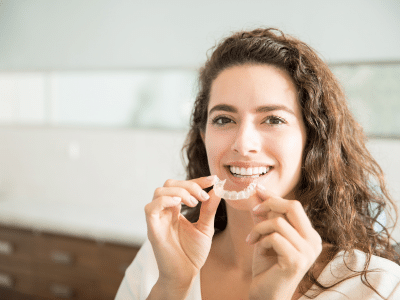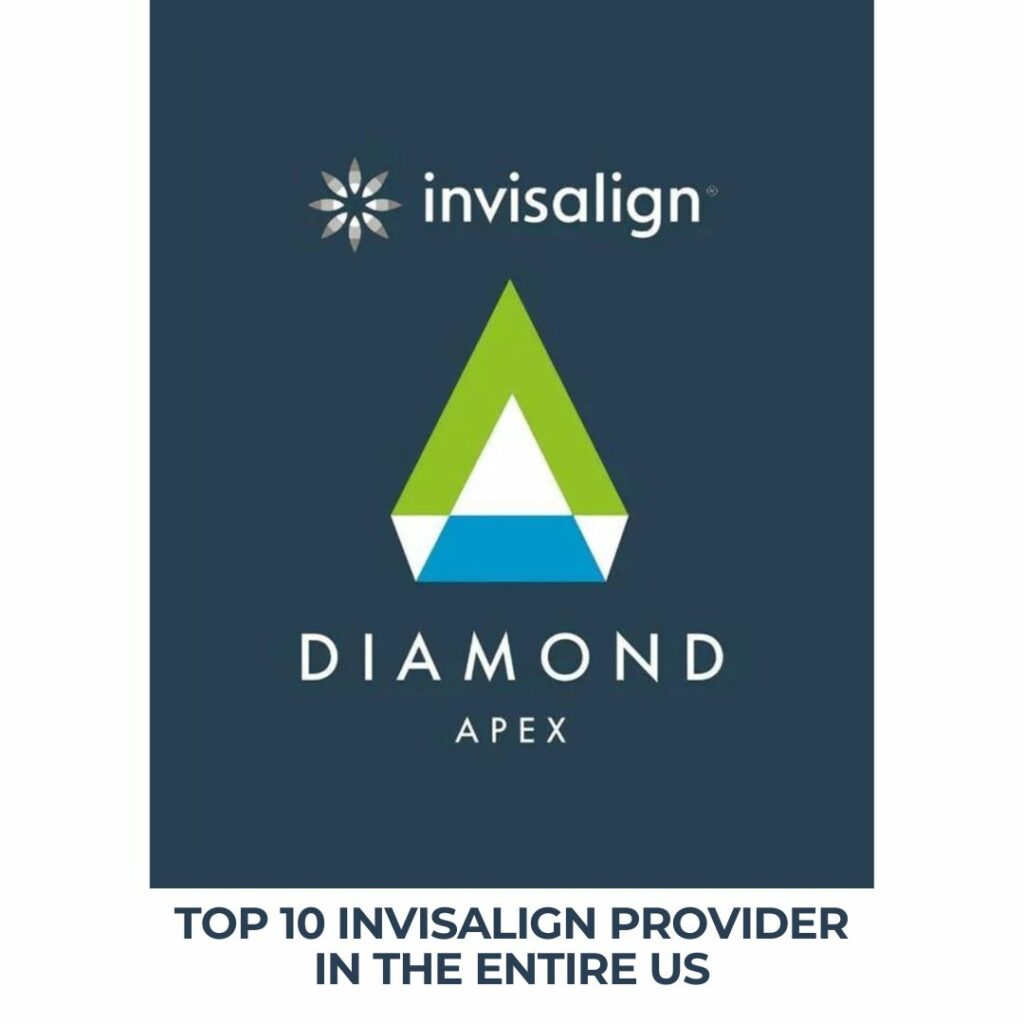The Causes, Consequences, and Prevention of Teeth Shiftin
The Causes, Consequences, and Prevention of Teeth Shifting

Teeth shifting can be caused by several factors, including aging, general wear and tear, grinding, impact or injury to the mouth or face, gum disease, tooth decay, and gaps caused by missing teeth. However, some shifting can be prevented by practicing proper oral health. Brushing and flossing twice a day to your dentist’s standards promotes gum health and overall tooth health, which reduces the chances of shifting. Avoiding things that are high in sugar and acid can also prevent premature aging and shifting of the teeth. Additionally, avoiding tobacco and smoking can help prevent shifting as well as better general and oral health.
If you notice any tooth movement, it could be a sign of a more significant problem. Tooth movement can cause discomfort, lead to additional orthodontic treatment, and be a symptom of an underlying dental condition. Therefore, it is essential to seek the help of an orthodontist or dentist if you experience any movement of your teeth.
In conclusion, teeth are not supposed to move around, and any shifting can be a cause for concern. It is vital to understand the causes, consequences, and prevention of teeth shifting to maintain good dental health. Practicing proper oral hygiene and avoiding unhealthy habits can prevent tooth shifting and promote overall dental health.
Boost Your Oral Health with These Essential Nutrients
Boost Your Oral Health with These Essential Nutrients

1) Calcium
Calcium is a superstar when it comes to building strong bones—and your teeth are no different! This mineral helps harden tooth enamel and strengthens your jawbone, providing a solid foundation for your smile. Make sure to include plenty of dairy products, such as milk, cheese, and yogurt, in your diet, along with calcium-rich vegetables like broccoli.
2) Vitamin D
Vitamin D works alongside calcium to promote healthy teeth by improving calcium absorption and boosting bone density. Without enough vitamin D, your body can’t effectively use the calcium you consume. Get your daily vitamin D by soaking up some sun, drinking fortified milk or orange juice, and eating fatty fish or mushrooms.
3) Potassium
Potassium is another key player in maintaining oral health. It works with magnesium to keep your blood from becoming too acidic, which can otherwise lead to calcium loss from your bones and teeth. Foods rich in potassium include bananas, avocados, potatoes, and lima beans.
4) Phosphorus
Phosphorus supports the work of calcium by helping to build strong bones and teeth. You can find phosphorus in a variety of foods, including seafood like shrimp, tuna, and salmon, as well as in plant-based sources like soybeans, lentils, and pumpkin seeds.
5) Vitamin K
Vitamin K is essential for bone health, helping to block substances that break down bone and aiding in the production of osteocalcin, a protein that strengthens bones. Leafy greens such as kale, spinach, and collard greens are excellent sources of vitamin K.
6) Vitamin C
Vitamin C is crucial for healthy gums and soft tissues in your mouth, offering protection against gum disease. To increase your vitamin C intake, enjoy citrus fruits, potatoes, and leafy greens as part of your diet.
7) Vitamin A
Vitamin A is important for maintaining healthy mucous membranes and preventing dry mouth, while also promoting quicker healing of oral tissues. Include foods like fish, egg yolks, and liver in your diet to ensure you’re getting enough vitamin A.
By making sure you get enough of these essential nutrients, you’ll be well on your way to a healthier mouth and a brighter smile!
Orthodontic Emergency Essentials
Orthodontic Emergency Essentials

Safety First
While accidents are sometimes unavoidable, there are a few things you can do to take preventative measures against tooth emergencies. You should be doing things like:
- Wearing a mouthguard while playing sports
- Brushing and flossing regularly to keep your teeth and gums healthy
- Staying away from hard, crunchy, or sticky foods you aren’t supposed to eat while in braces treatment
- Going to all of your orthodontist and general dentist appointments as scheduled
Preparation is Key
Preparation is the ultimate key to keeping a small orthodontic emergency from escalating into a full-blown disaster. Here are some things you should keep readily available at home, in the car, and while traveling to make sure you’re ready for an orthodontic emergency:
- Over the Counter Painkiller: Over the counter pain relievers such as Advil, Aleve, and Ibprofuen may be taken to help alleviate any pain or discomfort. Please consult the directions on the back of the bottle or your general practitioner for safe dosage amounts and instructions. An oral painkiller such as Orajel may prove helpful as well.
- Orthodontic Wax: Your orthodontist’s office gives you wax for a reason! You can use this wax to cover a bracket or hook that’s rubbing or causing any discomfort. Don’t be stingy with it! And never hesitate to ask your orthodontist for more wax if you run out. Additionally, if something is out of whack, you can cover it with wax until you can get to your orthodontist’s office to have them take a look.
- Nail Clippers: If you have a wire that is poking you and you need immediate relief, sometimes wires can be clipped using nail clippers with the help of a parent or trusted adult. DO NOT ATTEMPT THIS WITHOUT SPEAKING TO YOUR ORTHODONTIST’S OFFICE FIRST. Your office should have an emergency number to call, and they can talk you through how to do this safely.
- Floss: If something uncomfortable gets wedged in between your teeth, floss can usually set it free. Don’t forget to use your floss threaders to help make flossing with braces easier!
- Your Orthodontist’s Contact Info: Be sure to contact your orthodontist’s office if any orthodontic emergency strikes. They can often see you that day, if necessary, or if you’re out of town, they can give you professional advice and perhaps even get you in contact with a local Orthodontist in your temporary location.
It is important you take measures to keep your mouth and teeth safe. However, if an orthodontic emergency takes place, no need to fear! Just make sure you have an emergency kit on hand to help tackle the problem. As always, never hesitate to contact our office if you find yourself with an orthodontic emergency. We are here to help!
When To Schedule Your Child’s First Orthodontic Appointment
When To Schedule Your Child’s First Orthodontic Appointment

often ask, “When is the best time for my child to visit an orthodontist?” Dr. Barton Soper, Dr. Gabriela Aragon, Dr. Lauren Lewandowski, Dr. Mohammad Mainayar, Dr. Kara McCulloch and Dr. Todd Steinhart at Advanced Orthodontics has the answer for you.
Orthodontics involves realigning teeth into a perfect smile, shifting them from their current position to the desired one. Although orthodontic treatment is beneficial at any age, certain times, especially during juvenile and adolescent growth spurts (ages 7-12), are more advantageous.
Think of it like turning the wheel of a car without power steering. It’s doable but much harder when the car isn’t moving. Similarly, during growth phases, teeth and jaw development are ongoing, making it easier for an orthodontist to guide jaw growth and create space for teeth.
The American Association of Orthodontists suggests that children be examined by an orthodontist by age 7 to determine if early treatment is necessary. Becoming an orthodontic specialist requires an additional three years of training beyond dental school, focusing on tooth movement and jaw growth.
A referral from your general dentist isn’t required for a complimentary orthodontic evaluation. Be proactive and contact our office to schedule a complimentary smile exam. If your child isn’t a candidate for early treatment, we’ll continue to monitor their dental and jaw growth to determine the optimal time for treatment.
Setting the Record Straight: Invisalign Facts
addresses common misconceptions about the cost and effectiveness of Invisalign.

Myth: Invisalign is Not Cost-Effective
There’s a common misconception that Invisalign is more expensive than traditional braces. However, at Advanced Orthodontics, we strive to offer affordable treatment options, including flexible payment plans and insurance support. Invisalign can be just as cost-effective, providing excellent results without the perceived higher cost.
How Invisalign Works
Invisalign aligners are crafted using cutting-edge 3-D computer imaging technology, creating a precise replica of your teeth and gums. These custom-made aligners gradually move your teeth into the desired position. The treatment involves shorter and less frequent visits than traditional braces, with many patients completing treatment in about a year.
Invisalign: A Convenient and Comfortable Choice
One of the significant advantages of Invisalign is the convenience it offers. Unlike braces, Invisalign aligners can be removed for meals, sports, and cleaning. This flexibility helps maintain good oral hygiene and reduces discomfort. Remember to wear your aligners for at least 20 hours a day for optimal results.
Invisalign’s Success and Efficacy
Some may wonder if Invisalign is as effective as traditional braces. Thanks to recent technological advancements, Invisalign can achieve comparable results, often within the same timeframe or even faster. The discreet nature of Invisalign also helps boost patients’ confidence, encouraging better compliance with treatment.
Not every patient is a candidate for Invisalign, but at Advanced Orthodontics, we offer a range of orthodontic treatments to suit your needs. Contact us for a free smile exam and discover the best path to a “Smile that Lasts a Lifetime.”
5 Tips for Teaching Kids How to Brush
5 Tips for Teaching Kids How to Brush

- Start Them Young! – In order for your child to learn how to properly brush their teeth, start by teaching them at a younger age. This allows them to develop consistency and routine while also getting plenty of brushing practice in! Make sure your child knows that brushing your teeth leads to a healthy smile. Also, be sure to discuss cavities, bad breath, toothy decay, and all of the other negatives that arise from improper tooth brushing.
- Make it Fun! – This aspect is truly key. If you can make tooth brushing fun and not be viewed as a chore, children will be more inclined to do it. Do it with them! Here’s an idea: pick a song he or she loves that is about two minutes in length. Then you both have to brush your teeth for the entire duration of the song!
- Let Them Pick Out Their Toothpaste and Toothbrush – Just like kids get excited about picking out what they get to wear, let them pick out their toothpaste and toothbrush (just be sure to purchase a toothpaste with fluoride in it!). This way they have a flavor of toothpaste they like and a toothbrush they are excited about!
- Compliment Them! – When their teeth look good say so! Positive reinforcement is never a bad idea with children. If you make them feel like brushing their teeth is a skill they are good at, they will be more apt to keep doing it!
- Find the Right Dentist – Find a dentist who your child likes and is good at working with kids. You can even ask the dentist to compliment the child’s brushing. Your dentist can also give you tips and tricks for your child’s oral hygiene care.
If you follow these five simple tips, you will be well on your way to making sure your child is an excellent tooth-brusher! Tooth brushing is an important part of maintaining good oral health and is a skill that should be instilled from a young age. If you have any questions about tooth brushing and oral hygiene, please don’t hesitate to contact our office.





